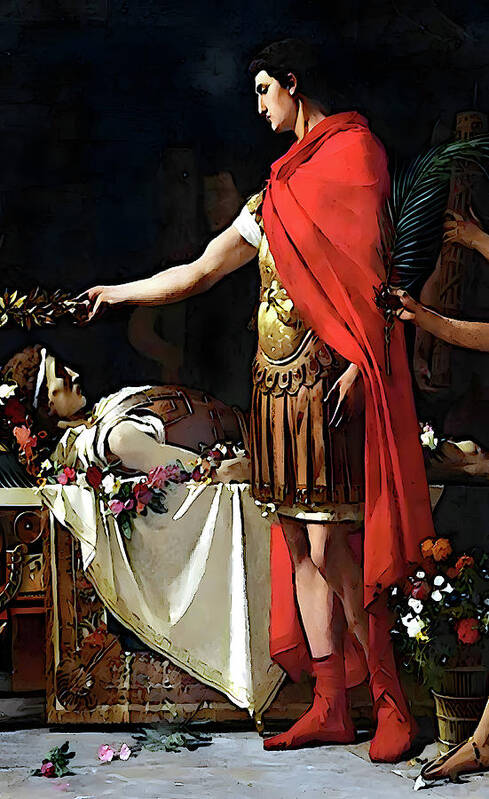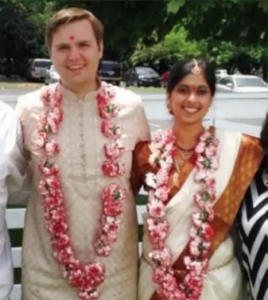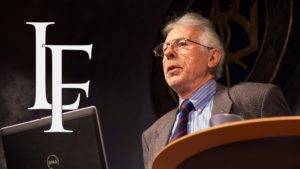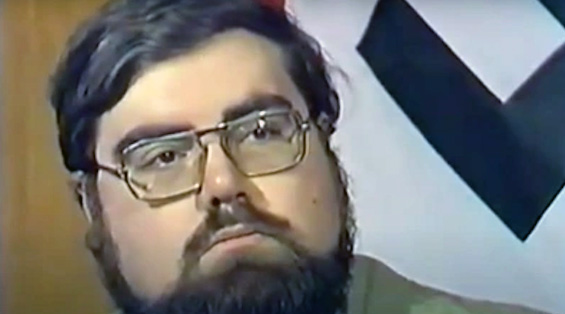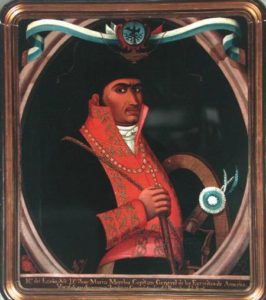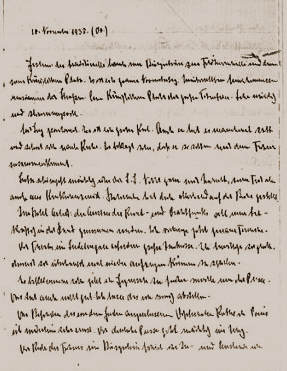
Goebbels’ Diaries
Joseph Goebbels, based on his frequent and extensive conversations with Hitler, recorded numerous times in his diary that Hitler was anti-Christian and wanted to destroy the churches. A few days after Christmas in 1939, he conversed with Hitler and reported, “The Führer is deeply religious, but entirely anti-Christian. He sees in Christianity a symptom of decay. Rightly so. It is a strata deposited by the Jewish race.”
The first chapter of Richard Weikart’s book is entitled ‘Was Hitler a Religious Hypocrite?’ In the white advocates’ internet movement, Carolyn Yeager has been the most faithful in holding in high esteem the memory of Hitler and his Reich. But like many Christian white nationalists, she has failed to notice the hypocrisy of the Führer’s public pronouncements when compared to his private pronouncements. I recommend Weikart’s book to those racialist Christians who are stuck with Hitler’s public image.
Who was the historical Hitler? Since, in many respects, Hitler is the antithesis of the archetypal Jesus, we can recall a verse from Mark’s gospel that portrays him: ‘He spoke to them only in parables, but to his disciples privately he explained everything’.
Plenty of evidence suggests Hitler was concerned lest he offend the religious sensibilities of the German public. In a lengthy passage in Mein Kampf, he warned against repeating the disastrous course that caused Georg von Schönerer’s Pan-German Party to nose dive. Schönerer was an Austrian politician in the late nineteenth and early twentieth centuries who wanted to unite all Germans in a common empire. His fervent German nationalism brought him into conflict with the multi-ethnic Austro-Hungarian Empire, which would dissolve if Schönerer had his way. He also promoted a biological form of anti-Semitism, wanting to purify the German people by getting rid of this allegedly foreign race. In 1941, Hitler told his colleagues that when he arrived in Vienna in 1907, he was already a follower of Schönerer. By the time he wrote Mein Kampf, he agreed fully with Schönerer’s Pan-German ideals, affirming, “Theoretically speaking, all the Pan-German’s [Schönerer’s] thoughts were correct.” However, he blamed Schönerer for not recognizing the importance of winning the masses over to Pan-Germanism and harshly criticized him for launching the Los-von-Rom (Away-from-Rome) Movement, which called on Austrians to abandon the Roman Catholic Church. Schönerer opposed Catholicism because he considered it an internationalist organization that undermined nationalism.
This reminds me of what Henry VIII did in separating the Church of England from papal authority.
He believed it posed a danger to the German people since it included many different nationalities, including his enemies: the Slavic groups in the Austro-Hungarian Empire. Schönerer himself personally left the Catholic Church in January 1900 and joined the Lutheran denomination. Though he occasionally lauded Luther and Protestantism, his concern was purely political. According to Andrew G. Whiteside, a leading expert on Schönerer, he remained a pagan at heart and was indifferent to Christianity; though sometimes he claimed to be a Christian, at other times he admitted, “I am and remain a pagan.” Another time, he stated, “Where Germandom and Christendom are in conflict, we are Germans first… If it is un-Christian to prefer the scent of flowers in God’s own free nature to the smoke of incense… then I am not a Christian.” According to Whiteside, “none of the Pan-German leaders was in the least religious.”
Hitler viewed the Los-von-Rom Movement as an unmitigated disaster because it unnecessarily alienated the masses from the Pan-German Party, precipitating its decline. Hitler suggested the proper political course would be to imbue ethnically German Catholics (and Protestants) with nationalist sentiments so they would support a “single holy German nation,” just as they had done during World War I. Hitler also rejected Schönerer’s anti-Catholic crusade because he insisted that a successful political movement must concentrate all its fury on a single enemy. A struggle against Catholicism would dissipate the Nazi movement’s power and sense of conviction it needed to carry on its fight against the Jews.
Wow, this puts me closer to Schönerer than to Hitler, even though, privately, Hitler believed the same as Schönerer did about the religion of our parents.
But we must try to understand Hitler. In the case of Henry VIII, the winds of the zeitgeist on the British Isle were in his favour. The Austrians and Catholic Germans weren’t prepared for such a step, and in any case, German Lutheranism was as harmful to the Aryan cause as Roman Catholicism. If someone wants, like Hitler, to do politics, he has to compromise.
While Hitler faulted Schönerer for alienating the masses through his anti-Catholic campaign, he was not thereby endorsing Catholicism. Overall, he supported Schönerer’s ideological goals and only objected to his inopportune tactics: “[The Pan-German movement’s] goal had been correct, its will pure, but the road it chose was wrong.” What Hitler learned from Schönerer’s tactical mistake was that political parties should steer clear of interfering with people’s religious beliefs or attacking religious organizations: “For the political leader the religious doctrines and institutions of his people must always remain inviolable; or else he has no right to be in politics, but should become a reformer, if he has what it takes! Especially in Germany any other attitude would lead to a catastrophe.” Hitler thus warned any anticlerical members of his party to keep their antireligious inclinations private, lest they alienate the masses.
Hitler’s compromise took a toll that is noticeable even in American white nationalism: what I have been calling monocausalism on this site.
By focusing, at least in the Reich’s public pronouncements, solely on Jews as the Enemy #1 of the Aryan, the public NS ideology exonerated Christians. I won’t reprove what Hitler did, because rather than being a religious reformer he chose to be a politician; and every politician has to compromise. But this tactic left a gap in racial ideology that to this day hasn’t been filled. (Since American white nationalists aren’t politicians but internet commentators, unlike the NS of the previous century they could break down the barrier between private and public, and start saying what Hitler said privately about Christianity, which they don’t.)
In 1924, when Hitler was interned in Landsberg Prison after his failed Beer Hall Putsch, his fellow prisoner and confidante Rudolf Hess talked with other Nazis about religion. Hitler did not join the conversation; afterward, he told Hess that he dared not divulge his true feelings about religion publicly. Hitler confessed that, even though he found it distasteful, “for reasons of political expediency he had to play the hypocrite toward his church.” From the early days of his political activity, Hitler recognized that being a religious hypocrite had its political advantages.
In his diaries, Goebbels confirmed that Hitler camouflaged his religious position to placate the masses. Based on his conversations with Hitler more than a year before the Nazis came to power, Goebbels wrote that Hitler not only wanted to withdraw officially from the Catholic Church but even wanted to “wage war against it” later. However, Hitler knew withdrawing from Catholicism at that moment would be scandalous and undermine his chances of gaining power. Rather than commit political suicide, he would bide his time, waiting for a more opportune moment to strike against the churches. Goebbels, meanwhile, was convinced the day of reckoning would eventually come when he, Hitler, and other Nazi leaders would all leave the Church together. If Hitler was being frank with Goebbels, then his public religious image was indeed a façade to avoid offending his supporters.
It couldn’t be clearer.
In a diary entry from June 1934, Rosenberg also explained how Hitler masked his true religious feelings for political purposes… According to Rosenberg, Hitler divulged his anti-Christian stance and “more than once emphasized, laughing, that he had been a heathen from time immemorial,” and that “the Christian poison” was approaching its demise. Rosenberg explained, however, that Hitler kept these views top secret.
Multiple sources, not only his monologues that we have begun to translate, portray what Hitler said to his ‘apostles’ in private in contrast to his ‘parables’ to the people.
In a major speech on the sixth anniversary of the Nazi regime (the same speech where he threatened to destroy the Jews if a world war broke out), Hitler remonstrated against the “so-called democracies” for accusing his government of being antireligious. He reminded them that the German government continued to support the churches financially through taxes and pointed out that thousands of church leaders were exercising their offices unrestrained. But what about the hundreds of pastors and priests who had been arrested and thrown into prison or concentration camps?
A fair question.
The only religious leaders persecuted by his regime, he smugly said, were those who criticized the government or committed egregious moral transgressions, such as sexually abusing children.
It is a myth that American Boston journalists were the first in the West, at the beginning of this century, to expose the Can of Worms that is the Catholic Church: it was the Germans. We can imagine how many Catholic children would have been spared if Hitler had won the war…
“Nor is it acceptable,” Hitler told the churches, “to criticize the morality of a state,” when they should be policing their own morals (the Nazi regime was at this time conducting trials of Catholic clergy for sexual abuse). He continued, “The German leadership of state will take care of the morality of the German state and Volk.” In Hitler’s view, morality was the purview of the state and its political leaders, not religious institutions and religious leaders. Any pastor or priest teaching his congregation morality contrary to Nazi policy or ideology could be labeled a political oppositionist, even if he was simply teaching moral precepts that Christians had been teaching for centuries.
Highly commendable, but because he lost the war we never settled accounts with Christianity: something Hitler planned to do after the war.
